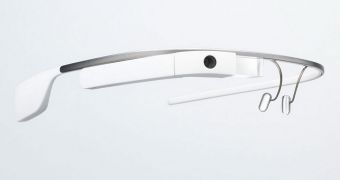We are sure that many are itching to get their hands on a Google Glass set of eyewear, but consumers will have to wait for another year or so before assuaging their desire for the wearable gadget.
That is because Google has not finished ironing out all the bugs and testing the gadget enough, despite development being more or less complete. The first stage anyway.
In an interview with BBC Radio 4, Google Executive Chairman Eric Schmidt touched on the topic, among many others.
According to him, Google hasn't settled on the final design, and is waiting for feedback form developers.
For those not up to date on this topic, Google Glass has already reached developers, who are tasked with making apps and suggesting refinements.
Once a year or so has passed, and Google has gathered a nice set of second and third opinions, it will make some changes and finally sent it out through retail channels.
We suppose there might be a small chance of normal people getting the “Explorer Edition” of Glass, but that is unlikely.
Even if, by some miracle, one does end up in foreign hands, via eBay auctions or whatever other means, it will do no good.
Google has imposed some very strict rules of use, to the point where it has reserved the right to remotely disable it if you even dare loan it to someone else, let alone sell it.
From what we understand, the company may even keep enforcing those rules after official availability ramps up, forbidding customers from loaning their Glass to anyone else.
We can't imagine the world standing for this, but Google isn't exactly famous for surrendering to peer or outside pressure. Still, we can hope that by the time the $1,500 / €1,500 item becomes widely available, the restrictions will be lifted.
Google may also want to take into account that there's just one step between remotely allowing use and remotely controlling/surveying everything clients do. Glass is already under fire for essentially removing people's right to choose not to be caught on film.

 14 DAY TRIAL //
14 DAY TRIAL //